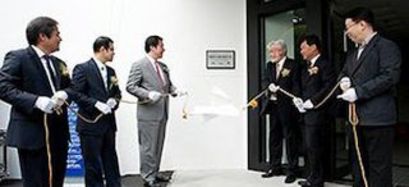Scientific Background
Only with the nearly unlimited resources sun light, carbon dioxide, and water, microalgae are capable to fix light energy into chemical energy. Using microalgae to produce renewable compounds does not compete with food production, because several microalgae can be cultivated in marine water on areas which are not suitable for agriculture. Very few microalgae are amenable for genetic manipulations to date. The development of respective methods opens up the opportunity for a targeted increase of yield for desired traits.
Projects and Objectives
To allow research on microalgae, a series of structural measures such as establishment of the local infrastructure according to European standards for environment safe gene technology were undertaken. Since the laboratory was opened in autumn 2010, we focus on the following scientific goals.
- Establishment of methods for the stable transfer of genes into the nuclear genomes of commercially important microalgae,
- Increasing the yield of poly unsaturated fatty acids (e. g. Omega-3) by genetic optimization of the activity of key genes from their biosynthesis (metabolic engineering),
- Transfer of the laboratory knowledge into the industrial scale for the commercial exploitation.
We succeeded to transfer genes into some microalgae, which haven´t been amenable for genetic manipulation until date. Thus, we now focus on the rational design of metabolic engineering strategies.
Aspects of Research Structure
The joint laboratory operates at the DSU and at the TUB. Molecular genetic work and the transformation of microalgae is mostly carried out at the DSU, whereas the biochemical analysis of genetically optimized microalgae is dominantly performed at the TUB. Scientist support PhD students as well as students participating in the exchange program established between the two universities.








